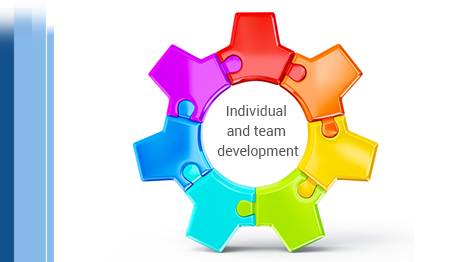- Behavioral Competencies
- Emotional Intelligence
- Individual & Team Development
- Sales Roles
- Service Roles
- Identification of Management
Derailers - Work Attitude / Integrity
- Health & Safety
- CMAP Career
- Employee Wellbeing
Fostering Personal Awareness and Development Using the Jung Types Indicator
Developed as an alternative to the Myers-Briggs Type Indicator®, this solution assesses personality within the framework of Jung’s type theory of personality. From knowing these preferences, it is possible to anticipate how a person will normally prefer to act in a variety of different situations. It is also possible to anticipate how a person will typically prefer to approach many aspects of their work. The solution provides a readily accepted and non-threatening framework for addressing work, interpersonal, management and teamwork issues.

Assessment Sections
This online assessment includes the following sections
| Section | Duration |
|---|---|
| Personality* | 30 minutes |
| Total duration ** | 30 Minutes |
* The duration of the personality questionnaire is an estimate as this section of the assessment is untimed.
** Excludes administration time, which adds roughly 2-3 minutes per section.
Report Options
These online report options are available for the following assessment
Please contact AADC for further information on reports & report sets.
The solution uses Psytech’s Jung Type Indicator (JTI). The JTI is based on the work of Swiss Psychologist Carl Jung, who identified how our preferences influence how we relate to the world and others around us. Jung’s model of Psychological Type identified three dimensions of preference, though a fourth dimension was later added to the model. It measures personality preferences along four dimensions, giving a classification of Psychological Type.
Model Dimensions:
- Extraversion vs. Introversion (E-I) describes a person’s preference either for the outer world of things and people (Extraversion) or for the inner world of thoughts and ideas (Introversion).
- Thinking vs. Feeling (T-F) describes a person’s preference either for the logical, analytic processes of thinking and decision making or the processes of subjectivity and the reliance upon feeling and emotion.
- Sensing vs. Intuiting (S-N) describes a person’s inclination either to focus upon raw information and data as presented to the senses or to focus on the underlying patterns in that data and information.
- Judging vs. Perceiving (J-P) identifies a person’s dominant preference towards the world as either a judging attitude or a perceiving attitude.
Assessing a person’s preferences and how they impact on areas including thinking style, interpersonal styles and problem-solving, the solution is particularly effective for personal development, enhancing communication, counselling, guidance and team building. Emphasising the strengths and developmental challenges of each Psychological Type, the solution is a valuable tool to facilitate training and development programmes.
*Myers-Briggs Type Indicator is a registered trademark of Consulting Psychologists Press.













